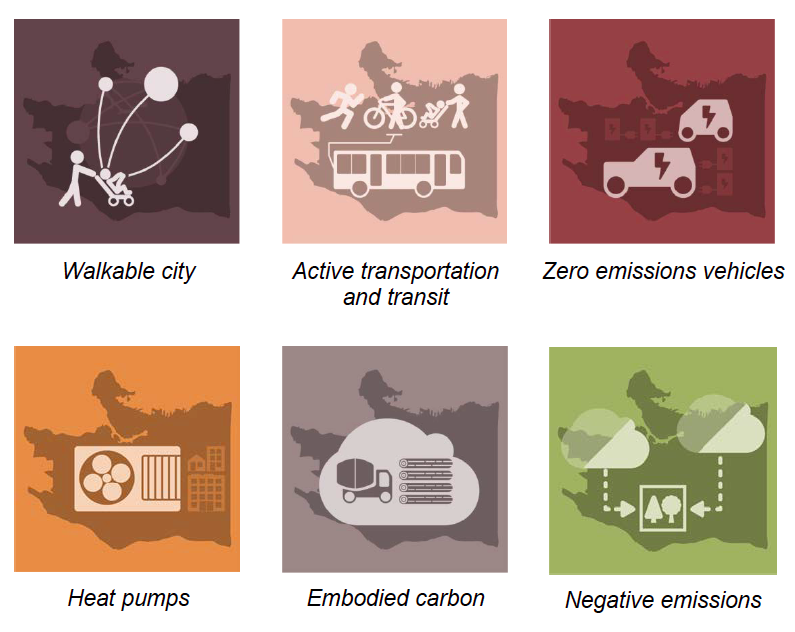Well, maybe not until next week. Tonight is just a study session on the city's climate strategy and retail health.
I recommend you tune in to this at home. Channel 8 or live-streamed online or YouTube.
I support this.
Council might consider passing an emergency resolution about tackling climate change.
And yet, in 20 pages of notes to council (minus attachments), not one mention of land use policy or housing.
www-static.bouldercolorado.gov/docs/2030_Clim…
CITY ORGANIZATION EMISSIONS REDUCTION 31% (Goal: 80% BY 2030)
RENEWABLE ELECTRICITY: 28% (Goal: 100% BY 2030)
LOCAL RENEWABLE GENERATION: ~ 53 MW (Goal: 100 MW BY 2030)
LANDFILL DIVERSION: 57% (Goal: 85% by 2025)
House Bill 19-1231 - New Appliance Energy and Water Efficiency Standards
House Bill 19-1260 - Building Energy Codes...
Senate Bill 19-239 – Addressing Impacts of Changes Related to Commercial Vehicles
House Bill 19-1159 – Modifications to the Income Tax Credits for Innovative Motor Vehicles..
House Bill 19-1298 - Electric Motor Vehicle Charging Station Parking
Senate Bill 19-096 - Collect Long-term Climate Change Data
Senate Bill 19-181 - Protect Public Welfare Oil And Gas Operations....
House Bill 19-1003 - Community Solar Gardens Modernization Act
House Bill 19-1261 - Climate Action Plan To Reduce Pollution
House Bill 19-1272 - Housing Authority Property In Colorado New Energy Improvement District...
• 26% reduction by 2025
• 50% reduction by 2030
• 90% reduction by 2050
2. Can it be rapidly scaled and replicated?
Talking about banking with institutions that "fund pipelines" and other oil and gas endeavors.
Only 7,000 of 20,000 rental units in Boulder are SmartRegs compliant (deadline was December 2018).
Mark your bingo cards, Boulder.
Last Morzel concern: "Diverting our time from the muni, which is where we get the biggest bang for the buck in carbon reductions."
While I and council were on vacay, Boulder filed for condemnation: dailycamera.com/2019/06/28/bou… (@CassaMN was clearly not on vacation.)
Carbon sequestration piece is "one of the frontiers. It feels like people are just trying to figure that out." But issues are how to scale and use existing "apparatus" to move it forward (USDA, etc.)
Apparently a hearing of some sort related to climate stuff is going to be in Boulder....? People are clapping. Must be a big deal. I feel like I already heard this somewhere...
Also wants to revisit Boulder's banking partners, as Weaver suggested.
Somebody is *clearly* running for re-election... :)
"But hopefully we can make connections," Catanach adds.
• 740 jurisdictions in 16 countries have declared a climate emergency.
• Some, but not all include binding actions
• Typical resolutions include setting up a process to develop an action plan and report back
And that wraps the climate discussion. @threadreaderapp, please unroll. Thanks! New thread coming for retail study.
Boulder's per capita CO2 emissions (in metric tons): Today, 2.26
In 2005 (the baseline for reduction goals): 3.16
2020 goal: 2.25
2050 goal: 0.5
2005: 24.6 million
2020 goal: 2.32 million
2050 goal: 1.59 million
Plug-in electric vehicles: 1.45% of all registered in Boulder (2005 baseline: 0%; 2020 goal: 5%; 2050 goal: 28%)
28% of the city's emissions are from transportation;
44% of those emissions are from vehicles registered here
There are 64,751 registered vehicles in the city of Boulder
New purchased plug-in electric vehicles: 3.24% (no goals yet)
Total BEV (battery EV) and PHEV (plug-in hybrid): 1,417 (no goals yet)



